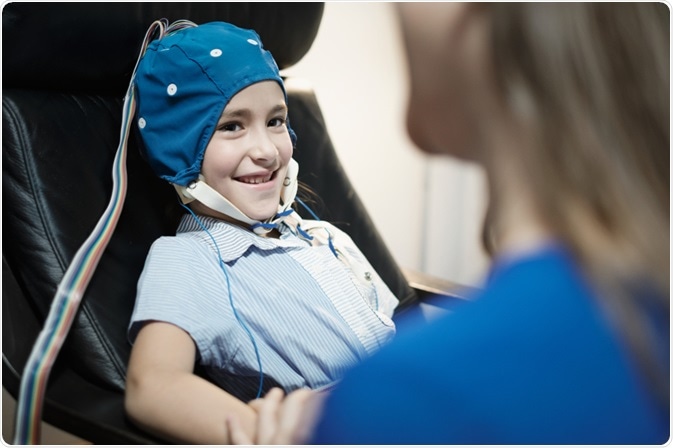Pediatric neurology refers to a specialized branch of medicine that deals with the diagnosis and management of neurological conditions in neonates (newborns), infants, children, and adolescents.

Image Credit: engagestock / Shutterstock.com
Pediatric neurological conditions
The discipline of child neurology encompasses diseases and disorders of the spinal cord, brain, peripheral nervous system (PNS), autonomic nervous system (ANS), muscles, and blood vessels that affect individuals in these age groups.
If a child has problems that involve the nervous system, a pediatric neurologist has the specialized training and knowledge to assess, diagnose, and treat the child. The conditions dealt with by pediatric neurologists vary considerably, from relatively simple disorders such as migraines or cerebral palsy to more complex and rare conditions such as metabolic diseases or neurodegenerative disorders.
Some examples of the types of conditions that can be encountered by specialists in this field include:
- Genetic diseases of the nervous system
- Congenital metabolic abnormalities that affect the nervous system
- Congenital birth defects affecting the brain and spinal cord, such as spina bifida
- Neurological developmental problems during childhood
- Childhood epilepsy
- Febrile seizures
- Movement disorders such as cerebral palsy
- Progressive neuromuscular conditions such as muscular dystrophy
- Abnormal mental development, speech disabilities, and learning disabilities
- Autism spectrum disorders
- Behavioral disorders such as attention deficit hyperactivity disorder
- Headaches and migraine
- Hydrocephalus or excess fluid build-up in the brain
- Head injuries and their complications
- Brain tumors
- Hospice and palliative medicine
- Neuromuscular medicine
- Sleep disorders
- Vascular neurology
- Intellectual disabilities
Pediatric neurologists act as consultants to primary care physicians, who may refer children to the neurologists for specialist care. For children with long-term neurological ailments, the pediatric neurologist provides regular care and consultation.
Child neurologists are found in a variety of medical environments ranging from children’s hospitals to outpatient practices, university medical centers, and private clinics. These physicians combine their understanding of diagnosis and treatment of the nervous system with expertise in childhood disorders and children’s special needs.
Overall, about 40% to 50% of the patients treated in a typical pediatric neurology practice have epilepsy, while 20% have learning difficulties or developmental problems and 20% are suffering from headaches. The remainder of patients being treated by pediatric neurologists will typically have rare or unusual conditions such as metabolic or genetic diseases.
Many centers are equipped with the specialized facilities and knowledge needed to treat very specific disorders such as rare neurodegenerative conditions, intractable epilepsy, or pediatric strokes.
Shaun Hussain, MD | Pediatric Neurology - Mattel Children's Hospital UCLA
Pediatric neurology research
A number of pediatric neurologists choose careers in laboratory-based, clinical, or translational research, meaning that the subspecialties of this field can attract individuals with Ph.D. degrees, medical degrees (MDs), or other forms of advanced training related to research.
Advances in neurogenetics have allowed this field to move from identifying single-gene disorders to research into complex conditions such as Tourette’s syndrome or autism spectrum disorders. The opportunities available to both clinical and basic researchers in this field are continuing to expand.
In the United States, the training to become a pediatric neurologist involves four years of medical school, followed by 1 to 2 years of pediatric residency and at least three more years of residency training in adult and child neurology. Physicians then require certification from the American Board of Pediatrics and the American Board of Psychiatry and Neurology.
References
Further Reading
Last Updated: Apr 8, 2023